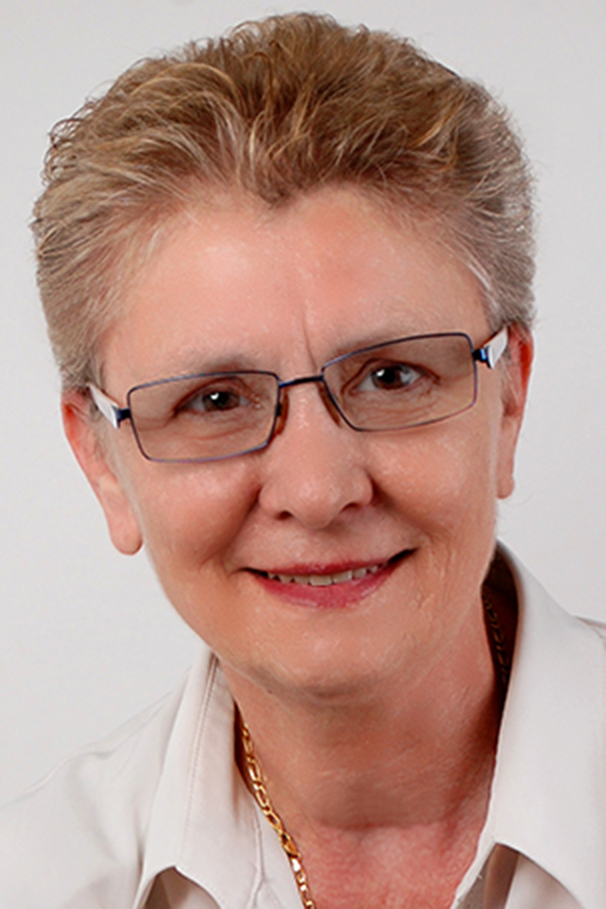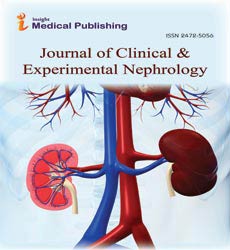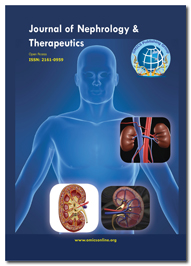Theme: Exploring the recent advancements and new therapeutic approaches in Nephrology
Nephrology 2017
World Kidney Meeting
February 20-21, 2019 Dallas, USA
For more please visit: WKM 2019
International scientific committee invites all the attendees to attend the “World Kidney Meeting 2019”. The conference will be held in Dallas, USA during February 20-21, 2019.
The global conference is a rich mix of workshops, keynote and plenary sessions, networking, exhibitions, poster competition and the large number of delegates to share exchange and gain knowledge in the field.
Major scientific sessions:
|
Kidney |
Fluid, Electrolytes, Acid-Base Disorders |
|
Acute Kidney Injury (AKI) |
CKD -Mineral and Bone Disorders |
|
Chronic Kidney Disease (CKD) |
Kidney and Bladder stones |
|
Dialysis and Renal Care |
Urology/Urinary Tract Infections |
|
Kidney Transplantation |
Geriatric-Genetic Kidney Diseases |
|
Pediatric Nephrology |
Renal Nutrition |
|
Kidney Cancer |
Nephrology Nursing |
|
Diabetic Kidney Disease |
Diagnosis of Kidney Diseases |
|
Cardiovascular Impacts of Kidney Disease |
Renal Pathology-Immunology |
|
Glomerular-Tubulointerstitial Disorders |
Treatment, Drugs for Kidney Diseases |
Key Reasons to attend
We are cordially inviting you to share your ideas, experience and knowledge with the other participants from all over the world but also to enjoy in the exploring beautiful region of New York.
Receive certificate from international organizing committee members, Network with others in your field or areas of interest, Present your own original work to key international opinion leaders, Participate in practical, clinic-friendly workshops on nephrology, dialysis, transplantation, nutrition & more.
Who Should Attend?
Nephrologists, Cardiologists, Diabetologists, Dieticians, Urologists, Family Physicians, Internists, Medical Students, Nurses, Pathologists, Surgeons, Medical Universities, Dialysis Centers, Pharmaceutical Companies, Associations and Societies.
ConferenceSeries Ltd invites all the participants from all over the world to attend ‘15th International Conference on Nephrology & Therapeutics’ during August 28-30, 2017 in Philadelphia, USA which includes prompt keynote presentations, Oral talks, Poster presentations and Exhibitions.
ConferenceSeries Ltd Organizes 1000+ Global Events Every Year across USA, Europe & Asia with support from 1000 more scientific societies and Publishes 700+ Open access journals which contains over 100000 eminent personalities, reputed scientists as editorial board and organizing committee members. The conference series website will provide you list and details about the conference organize worldwide.
CME Statement
In support of improving patient care, this activity has been planned and implemented by Conference Series, Ltd and Center for Education Development (CED). CED is jointly accredited by the Accreditation Council for Continuing Medical Education (ACCME), the Accreditation Council for Pharmacy Education (ACPE), and the American Nurses Credentialing Center (ANCC), to provide continuing education for the healthcare team.
Designation Statement
Center for Education Development designates the live format for this educational activity for AMA PRA Category 1 Credits™ and ANCC credit. Participants should only claim credit commensurate with the extent of their participation in the activity. Full accreditation information including disclosures, credit hours available and faculty information will be provided in the attendee handout onsite.
Nephrology Conferences is a global platform to discuss and learn about Clinical Nephrology, Pediatric Nephrology, Diabetic Nephrology, Geriatric Nephrology, Integrative Nephrology, Renal Care, Urology, Renal Oncology, Kidney, Scientific conferences and meetings and the field of Nephrology. Nephrology Meetings would discuss various topics related to kidney diseases, Chronic Kidney Diseases, Kidney cancer, Kidney Transplantation, Hypertension, Renal dialysis and procedures. ConferenceSeries Ltd has taken the initiation to gather the world class experts both from industry and academic in a common platform at Nephrology-2017 Conference.
The conference provides the research works of Nephrology expertise from various scientific backgrounds and the same can be perceived by young researchers and students. Nephrology-2017 mainly aims to promulgate knowledge in both life sciences and medical sciences need in course of research work and therefore would be a perfect venue of Philadelphia to share and develop knowledge on key tools.
Nephrology-2017 conference is an international platform for presenting research about latest techniques, newer technologies and various newly implemented drugs for the treatment of kidney diseases, exchanging ideas about it and thus, contributes to the dissemination of knowledge and decreases the incidence rate globally. Frequently there are more than a few speakers within each conference, and these speakers are experts in Nephrology feilds. In Nephrology Meetings several topic reviews are programmed each day throughout the conference, and participants can usually make their choice of topics from among these scheduled international events.
ConferenceSeries Ltd is privileged to announce 15th International Conference on Nephrology & Therapeutics which will be held during August 28-30, 2017 Philadelphia, USA in which includes prompt keynote presentations, Oral talks, Poster presentations and Exhibitions.
Nephrology Conference 2017 is a global platform to discuss and learn about Kidneys and their Health, Nephrology, Chronic Kidney Disease, End Stages Renal diseases, Diabetic Nephropathy, Hemodialysis and peritoneal dialysis, Nephrology and Urology, Hypertension, Pediatric Nephrology, kidney Transplantation, Clinical Nephrology, Glomerular Diseases, Acute Renal diseases, Stages of kidney diseases ect.
Track: 1 Nephrology:
Now, a day’s new Nephrology developments in kidney failure treatment have helped many patients. Since no specific in alternative and Ayurvedic medicine for kidney can help treat kidney failure effectively, the best method is to combine them. Immunotherapy, as one great breakthrough in treating end-stage kidney disease, is just a combination of advanced western medical technologies and traditional herbal medicines, so this therapy mainly has two big effects. One is to purify patient’s blood, just as dialysis does. A clear internal environment can have a good preparation for the following treatment. The other effect of Immunotherapy is to repair damaged kidney cells which is due to poor blood and oxygen supply. To alter this situation, some herbal medicines such as rheum officinal and astragals mongholicus are used to increase the blood flow on the kidney to transport enough nutrition to the damaged cells. After a period of treatment, these kidney cells can recover to work again, so patients’ kidney function and life quality can be improved largely.
Track 2: Chronic Kidney Disease
Renal failure refers to temporary or permanent damage to the kidneys those results in loss of normal kidney function. There are two different types of Renal failures-acute and chronic. Acute renal failure has an abrupt onset and is potentially reversible. Chronic renal failure progresses slowly over at least three months and can lead to permanent renal failure. The causes, symptoms, treatments, and outcomes of acute and chronic are different. Chronic kidney disease, as defined since 2002 by the presence of kidney damage or reduced Glomerular filtration rate (GFR), affects 10% of the adult population worldwide and more than one-third of the elderly. A recent large Meta analysis of 46 general population, high risk and CKD, including more than 2 million participants, showed that both low estimated GFR and high albuminuria were associated with increased risk of all-cause mortality, cardiovascular disease and progression to End-stage renal disease (ESRD) regardless of age.
Track:3: End Stages Renal diseases
In general, patients with Anemia of chronic illness or chronic kidney disease can be treated on an outpatient basis. Confounding factors that need to be addressed in both diseases include concomitant blood loss, iron deficiency, or deficiencies of vitamin B12 and/or folic acid. When kidneys start to fail, little or no Erythropoietin (EPO) is produced and this results in a failure of red cell production. Another factor causing anaemia in kidney disease can be iron deficiency as iron is not absorbed so the kidneys start to fail this leads to Renal anaemia. Several million patients with chronic kidney disease (CKD) have benefited from the use of erythropoiesis-stimulating agents (ESAs) to correct severe anemia. Sometimes Haematopoies the formation of blood cellular components. All cellular blood components are derived from haematopoietic stem cells and Kidney biopsy is a medical procedure in which a small piece of kidney is removed from the body for examination, usually under a microscope. Microscopic examination of the tissue can provide information needed to diagnose, monitor or treat problems of the kidney. However, mortality data now suggest that treating CKD patients to achieve a haemoglobin (Hb) level >13 g/dl can be harmful.
Track 4: Diabetic Nephropathy
Diabetic's nephropathy Diabetic nephropathy also known as Kimmelstiel–Wilson syndrome, or nodular diabetic glomerulosclerosisand intercapillary glomerulonephritis, is a progressive kidney disease caused by angiopathy of capillaries in the kidney glomeruli. It is characterized by nephrotic syndrome and diffuse glomerulosclerosis. It is due to longstanding diabetes mellitus, and is a prime indication for dialysis in many developed countries. It is classified as a small blood vessel complication of diabetes. Clinically, diabetic nephropathy is characterized by a progressive increase in proteinuria and decline in GFR,Hypertension, and a high risk of cardiovascular morbidity and mortality. Diabetes has become the primary cause of End-stage renal disease (ESRD) in the United States, and the incidence of type 2 diabetes mellitus continues to grow in the United States and worldwide as described in Nephritis conferences.
Track 5: Hemodialysis and peritoneal dialysis
Renal dialysis (process the blood when the kidneys have failed) will require access to the blood stream. This procedure involves either insertion of a catheter and/or creation of a transmission between an artery and a vein beneath the skin. Usually this is accomplished in the patient’s arm and is often accomplished as an outpatient procedure. Dialysis treatments replace some of these functions through diffusion there are two main types of dialysis: haemodialysis and peritoneal dialysis. Haemodialysis and peritoneal dialysis are both used to treat kidney failure. Haemodialysis uses a man-made membrane (dialyzer) to filter wastes and remove extra fluid from the blood. Peritoneal dialysis uses the lining of the abdominal cavity (peritoneal membrane) and a solution (dialysate) to remove wastes and extra fluid from the body. Both haemodialysis and peritoneal dialysis can cause side effects. During this 5 year study the investigators would like to test if a different nutrition and diet can explain better survival of minority dialysis patients. The investigators will also test if in additional to nutrition there are 2 other reasons for better survival of minority dialysis patients, namely differences in bone and minerals and differences in social and psychological and mental health. The investigators plan to study 450 haemodialysis patients every 6 months in several dialysis clinics in Los Angeles South Bay area. These subjects will include 30% African Americans, 30% Hispanics, 30% non-Hispanic Whites and 10% Asians. In the HEMO study, the incidence of infection-related deaths was not reduced by higher dose of dialysis or by high-flux dialyzers, and most infection-related hospitalizations were not attributed to vascular access.
Track 6: Nephrology and Urology
Under this category includes diseases of the urinary system, prostate gland including the kidneys and bladder. The bladder or urethra usually effected in urinary tract infections, yet more genuine and serious infections include the kidney. A bladder disease may bring about pelvic torment, expanded inclination to urinate, torment with pee and blood in the urine. Renal infection may bring about back agony, sickness, heaving and fever
Track: 7 Hypertension
Hypertension, also known as high blood pressure or arterial hypertension is a chronic medical condition in which the blood pressure in the arteries is elevated. This session mainly covers the different types of hypertension and their assessment. There are two primary hypertension types. For 95% of people with high blood pressure, the cause of their hypertension is unknown — this is called essential, or primary, hypertension. When a cause can be found, the condition is called secondary. Isolated systolic hypertension, malignant hypertension, and resistant hypertension are all recognized hypertension types with specific diagnostic criteria. Assessment of hypertension basically includes: Confirmation of hypertension, Risk factors, Underlying causes, End organ damage & Indications and contraindications for antihypertensive drugs.
Track 8: Pediatric Nephrology
The Division of Pediatric Nephrology specializes in the diagnosis and management of children with a variety of acute and chronic kidney-related disorders. The division evaluates and treats hypertension, hematuria, proteinuria, renal tubular acidosis, nephrolithiasis, glomerulonephritis, and kidney failure.
Pediatric Nephritis is clinically and genetically heterogeneous entity characterized by either relapsing and course with significant morbidity and mortality resulting from complications of the disease itself, and its therapy. Pediatric Kidney stones are a group of crystals that are difficult to pass from the body.
Track 9: kidney Transplantation
Transplantation is the act of transferring cells, tissues, or organs from one site to another. The malfunction of an organ system can be corrected with transplantation of an organ example: kidney from a donor. Since the first successful Renal transplantation (RT) performed between the identical twins in the Peter Brent Brigham Hospital, Boston on 23rd December 1954 by Murray et al., RT has become a routine for the patients with end-stage renal disease. When a kidney is transplanted from a Non-identical individual, the allograft; the recipient mounts a Immuneresponse termed as an immune response. The immune response is initiated by the T cell recognition of the alloantigen and process is commonly known as the allorecognition. The first step of the complex events that leads to T lymphocyte activation, antibody production, allograft rejection and Transplant failure. This review highlights the fundamental principles of Transplant immunology and modern immunological assay techniques, which have important application in practice.
Track 10: Clinical Nephrology
The kidneys are vital for life with their complex network of blood vessels and intricate network of tubes and tubules that filter blood of its waste products and excess water.The kidneys maintain the fluid, electrolyte, and acid-base regulation that are altered by several disease conditions as well as drugs and toxins. Nephrology(from Greek νεφρÏŒς nephros "kidney", combined with the suffix -logy, "the study of") is a specialty of medicine and pediatrics that concerns itself with the study of normal kidneyfunction , kidney problems, the treatment of kidney problems and renal replacement therapy (dialysis and kidney transplantation). Nephrology deals with study of the normal working of the kidneys as well as its diseases.
Track 11: Glomerular Diseases
Glomerular disease can occur by itself (eg, affecting only the kidney), or may be associated with an underlying medical condition that affects other organ systems, such as lupus, diabetes, or certain infections. Glomerular disease can develop suddenly (called Acute), or develop slowly over a period of years (called Chronic). Treatment of glomerular disease depends upon its cause and type. Many diseases affect kidney function by attacking the glomeruli, the tiny units within the kidney where blood is cleaned. Glomerular diseases include many conditions with a variety of genetic and environmental causes, but they fall into two major categories: Glomerulonephritis (gloh-MEHR-yoo-loh-nef-RY-tis) describes the inflammation of the membrane tissue in the kidney that serves as a filter, separating wastes and extra fluid from the blood. Glomerulosclerosis (gloh-MEHR-yoo-loh-skleh-ROH-sis) describes the scarring or hardening of the tiny blood vessels within the kidney.
Track 12: Acute Renal diseases
Acute Renal diseases, previously called Acute renal failure (ARF), is an abrupt loss of kidney function that develops within 7 days. Acute kidney injury (formerly known as acute renal failure) is a syndrome characterized by the rapid loss of the kidney's excretory function and is typically diagnosed by the accumulation of end products of nitrogen metabolism (urea and creatinine) or decreased urine output, or both. AKI may lead to a number of complications, including metabolic acidosis, high potassium levels, uremia, changes in body fluid balance, and effects on other organ systems, including death. People who have experienced AKI may have an increased risk of chronic kidney disease in the future. Management includes treatment of the underlying cause and supportive care, such as renal replacement therapy.
Track 13: Stages of kidney diseases
The stages of kidney disease are determined by the glomerular filtration rate. Glomerular filtration is the process by which the kidneys filter the blood, removing excess wastes and fluids. Glomerular filtration rate (GFR) is a calculation that determines how well the blood is filtered by the kidneys. It is one way to measure kidney types.
They are Acute kidney disease is the sudden loss of kidney function that occurs when high levels of waste products of the body's metabolism accumulate in the blood. Chronic Kidney Disease is a gradual development of permanent kidney disease that worsens over a number of years. Pediatric Kidney Disease can affect children in various ways, ranging from treatable disorders without long-term consequences to life-threatening conditions. Polycystic Kidney Disease is characterized by the growth of numerous kidney cysts, which cause abnormalities in both the kidney structure and function. Hypertension Uncontrolled hypertension can damage many organs in the body including kidneys.
Track 14: Metabolic, Fluid and Electrolyte Disorders
Electrolytes play a vital role in maintaining homeostasis within the body. Some minerals—especially the macro minerals (minerals the body needs in relatively large amounts)—are important as electrolytes. The kidneys help maintain electrolyte concentrations by filtering electrolytes from blood, returning some electrolytes to the blood, and excreting any excess into the urine. Thus, the kidneys help maintain a balance between daily consumption and excretion. The physician should first explore all treatable causes of renal failure, example: Dehydration, Obstruction, Infection, Heart failure, Potassium depletion, and others. Approximately 90 percent of cases of end-stage renal disease are attributable to diabetes mellitus, glomerulonephritis, or hypertension. Kidney failure results in Fluid and Electrolyte imbalances, the build up of nitrogenous wastes, and reduced ability to produce renal hormones. The two treatment options are transplantation or dialysis. Kidney stones can also form from uric acid, which is a breakdown product of protein, or from struvite (ammoniomagnesium phosphate) or cystine.
Track 15: Kidney Stones
Kidney or bladder stones are solid build-ups of crystals made from minerals and proteins found in urine. Bladder diverticulum, enlarged prostate, neurogenic bladder and urinary tract infection can cause an individual to have a greater chance of developing bladder stones. If a kidney stone becomes lodged in the ureter or urethra, it can cause constant severe pain in the back or side, vomiting, hematuria (blood in the urine), fever, or chills.Bladder stones are hard masses of minerals in your bladder. Bladder stones develop when urine in your bladder becomes concentrated, causing minerals in your urine to crystallize. Concentrated, stagnant urine is often the result of not being able to completely empty your bladder. If bladder stones are small enough, they can pass on their own with no noticeable symptoms. However, once they become larger, bladder stones can cause frequent urges to urinate, painful or difficult urination and hematuria.
Track 16: Diagnostic, Imaging and Radiation techniques
Medical imaging is the technique and process of creating visual representations of the interior of a body for clinical analysis and medical intervention. Medical imaging seeks to reveal internal structures hidden by the skin and bones, as well as to diagnose and treat disease. Renal Scintigraphy, also known as "Renal scanning" or "Renal imaging," refers to several examinations using radioisotopes that evaluate the function and anatomy of the kidneys. Renal Scintigraphy is one of many imaging methods used to evaluate the kidneys. Ultrasound, Computed Tomography (CT), and Magnetic Resonance Imaging (MRI) can also be used. Your doctor will determine which of these examinations will provide the best information about your kidneys. Because the radiotracer accumulates differently in different kinds of tissue, it can help physicians determine if something is wrong with the kidneys. Renal Scintigraphy can also be used to evaluate a transplanted kidney.The medical image analysis market is driven by the increasing demand of the imaging modalities across various indications such as Oncology, Cardiology and Nephrology. The medical image analysis market is estimated to be $1.7 billion in 2012 and is growing at a rate of 7.2% from 2012 to 2017 to reach $2.4 billion. The Americas have the largest share in the open MRI market on account of the increasing aging populations who are aware of the benefits of early diagnosis.
Track 17: Treatment for Kidney diseases
Surgery is the main treatment for most kidney cancers. The chances of surviving kidney cancer without having surgery are small. Depending on the stage and location of the cancer and other factors, surgery may remove either the cancer along with some of the surrounding kidney tissue (known as a partial nephrectomy), or the entire kidney (known as a radical nephrectomy). The adrenal gland (the small gland that sits on top of each kidney) and fatty tissue around the kidney may be removed as well. Regenerative medicine refers to a group of biomedical approaches to clinical therapies that may involve the use of stem cells. The study of laparoscopy in managing patients with abdominal symptoms from autosomal dominant Polycystic kidney disease (PKD).
From April 1993 to July 1995, four patients with ADPKD underwent seven laparoscopic procedures: five cyst decortications were performed in two patients using a laparoscopic ultrasound unit and two laparoscopic nephrectomies were performed in two patients with end-stage renal failure. The mean operative time was 207 minutes for laparoscopic cyst decortication and 272 minutes for laparoscopic nephrectomy. Many people feel that a successful kidney transplant provides a better quality of life because it may mean greater freedom, more energy and a less strict diet.
Track 18: Diet for Kidney Health
As a result of changes in the way we eat and live, some chronic diseases are increasingly affecting both developed and developing countries. Indeed, diet-related chronic diseases such as obesity, diabetes, cardiovascular disease, cancer, dental disease, and osteoporosis are the most common cause of death in the world and present a great burden for society.
A dietary supplement is intended to provide nutrients that may otherwise not be consumed in sufficient quantities. Supplements as generally understood include vitamins, minerals, fiber, fatty acids, or amino acids, among other substances. U.S. authorities define dietary supplements as foods, while elsewhere they may be classified as drugs or other products. The application of nutrition science in the promotion of health, peak performance and individual care. Registered Nutritional Therapists use a wide range of tools to assess and identify potential nutritional imbalances and understand how these may contribute to an individual’s symptoms and health concerns. This approach allows them to work with individuals to address nutritional balance and help support the body towards maintaining health
Nephrology 2017
(Theme: Exploring the recent advancements and new therapeutic approaches in Nephrology)
Summary:
Conference series LLC welcomes all the delegates, participants, exhibitors, and speakers to the 15th International Conference on Nephrology & Therapeutics which is going to be held in Philadelphia, USA during August 28-30, 2017 Philadelphia, USA. This is going to be an informative conference which mainly deals with the Latest trends in the surgeries of the Nephrology. Eminent speakers of different countries are going to participate and share their views. The organizing committee is engaged in conducting this conference along with poster presentations, workshops, lectures, symposia etc. We invite you to attend our conference and experience the mesmerizing content of our conference and gain knowledge from it. We are eagerly waiting to meet you at Philadelphia, USA
For more details please visit: http://nephrology.conferenceseries.com/
Importance and Scope
Nephrology is an ancient art of healing the problems related to kidney diseases, Kidney cancer, Kidney surgeries etc. As the number of cases related to the Nephrology is increasing so it gained more importance in the field of medicine. In our conference we and our organizing committee is going to deal with the latest technologies used in the healing of kidney problems, and its related branches and different types of methods to cure it, new advancement in the therapeutics etc. It’s a better to interact with the famous personalities to clarify your views regarding the topic.
Market Research:
The Nephrology market research report states that demand for Nephrologists will likely benefit from healthcare reform. There will be Subsides for the people having low income, increasing the number of insured patients etc. As the number of insured patients increases, demand increases for all services in medicine especially Nephrology. Additionally, industry demand for treatment of Kidney diseases will be aided by the rising incidence of diabetes as well as the aging people an increase in the number of people living in medical homes, nursing facilities and/or spending time in hospitals is increasing. So, of course will the number of trained professionals staffing them. According to Unites states department of labour, in a study on the Nephrology; there are approximately 20,400 licensed Nephrologists in the United States only. Survey reveals that 25 out of 1000 people are suffering from Kidney Problem. So to compensate this Nephrologists in the market are increasing day by day.
Why Philadelphia, USA?
Philadelphia is the largest city in the U.S. state of Pennsylvania and fifth most populous in USA. It is located in the north-eastern United States, at the confluence of the Delaware and Schuylkill rivers. The city covers 141.6 square miles (367 km). Philadelphia became economic and Cultural valley of Delaware valley for its growing liberal political values and the city has earned a reputation as a historic city, a view which has proceeded into the 21st century.
Philadelphia is home to a diverse history of artists and arts organizations, and it is seat of its own country. It is now fast becoming the regional capital for healthcare as well. Due to the popularity related to kidney diseases and cases are increasing in USA, Philadelphia, is set to become the hub for specialized Nephrology and a center for medical education and research.
List of Hospitals & Research Center:
Out of top Nephrology specialists in America maximum of them are from Philadelphia. Almost in all hospitals Nephrology division is available. Some of the hospitals are below
Philadelphia, Pennsylvania USA
- Thomas Jefferson University Hospital , USA
- UCSF Medical Center, USA
- New York-Presbyterian University Hospital , USA
- Cooper University Hospital, USA
- Mercy Health System, USA
- Duke University Hospital, USA
-
Johns Hopkins Hospital, USA
Worldwide - Mayo Clinic, Rochester
- Cleveland Clinic, Cleveland
- Phoenix Hospitals, Phoenix
- Barwon Health, Australia
- Normah Medical Specialist Centre, Malaysia
- J.W. Goethe University Hospital, Europe
Figure 1: List of Hospital and Research Centre
Major Nephrology Associations and Society:
The Philadelphia Nephrology associates and American Society of Nephrology and American Transplant Society are the biggest in USA. For more information please go through some of the major Nephrology associations and societies in Philadelphia, USA and Worldwide.
Philadelphia, Pennsylvania USA
- Metropolitan Nephrology Associates
- Hypertension Nephrology Associates
- Pennsylvania Nephrology Associates
- Renal and Hypertensive Medicine
- The National Kidney Foundation
- Clinical Nephrology Associates
- Delaware Valley Nephrology Hypertension Associates
- Physicians - Nephrology Medical Associates
- American Renal Associates
- American Nephrology Nurses Association
- Nephrology - Einstein Health
- Cumberland Nephrology Associates
- Austin Kidney Associates
- Clinical Journal of the American Society of Nephrology
- Physicians | Washington Nephrology
- National Renal Administrators Association (NRAA)
- UNC Kidney Center
-
Arizona Kidney Disease and Hypertension Center
Worldwide
- International Society of Nephrology (ISN) Gateway
- American Society of Nephrology
- The Philippine Society of Nephrology
- Canadian society of nephrology
- Kidney Disease Association
- The National Kidney Foundation
-
Chronic Kidney Disease - World Kidney Day
Figure 2: Percentage of Societies
Companies Associated with Nephrology:
Here are some of the companies associated with Nephrology
- Astellas
- Amgen
- Baxter International Inc.
- DaVita HealthCare Partners Inc.
- Amerisourcebergen
- Genentech
- Keryx Biopharmaceuticals, Inc.
- Mallinckrodt Pharmaceuticals
- Anthem Biopharma
-
Sandor
Figure 3: Nephrology Industries and Companies (Worldwide and Philadelphia)
Top Universities of Nephrology:
Here is the list for some of the top Universities related with Nephrology worldwide and in USA
USA
- UCSF School of Medicine
- Johns Hopkins School of Medicine
- Michigan Medical School
- George Washington University
- University of Pennsylvania
- University of Washington
- Vermont College of Medicine
- University of Virginia Health system
- Indiana University School of Medicine
Worldwide:
- University of Salford, England
- Canadian Orthopaedic University
- Medizinesche Hochschule Hannover, Germany
- Cairo University
-
Mahsa University Malaysia
Figure 4: University associated with Nephrology (Worldwide and Philadelphia, USA)
Glance at Market and Funding for Nephrology:
Medical doctors, patients and health care providers consider the prevention of kidney diseases as an essential tool to improve the general health status of the population and the proportion of people suffering from kidney disease will be increased rapidly by 2020. A survey states that presently 1700 companies are under Nephrology market. In USA the revenue obtained due to Nephrology or dialysis devices is $108 billion. It will be also increased in the coming years.
Figure 5: Target Audience
Statistics of Universities, Companies and Associations Worldwide associated with Nephrology
Figure 6: Statistics of Universities, Companies and Associations
Projections: Growth by next 5-10 years:
The Global market for Nephrology is expected to reach $150 billion by the end of 2020. Over the past five years the Nephrology industry had steeped in to a right path way. And in the upcoming years it’s going to be a great support to the people suffering from different kidney problems. It is said that only in America Nephrology industry had cured 55% of the kidney problems than rest of the world. There is also special equipment used in the surgeries of kidney. The Nephrology associations are also taking care to raise these equipment’s in a faster way to reach the people as soon as possible. As the number of cases related to the Nephrology is increasing so it gained more importance in the field of medicine. The American Nephrology Association is playing a vital role to increase the funds towards the Nephrology department. By the next upcoming years we can see a drastic increase in the growth of Nephrology worldwide.
Figure 7: Market of Nephrology and dialysis Products (in Billions USD)
Conference Highlights
- Nephrology
- Pediatric Nephrology
- Clinical Nephrology
- Diabetic Nephropathy
- Chronic Kidney Disease
- Hemodialysis and peritoneal dialysis
- Nephrology and Urology
- End Stages Renal diseases
- kidney Transplantation
- Treatment for Kidney diseases
- Glomerular Diseases
- ‎Hypertension
- Acute Renal diseases
- Metabolic, Fluid and Electrolyte Disorders
- Stages of kidney diseases
- Kidney Stones
- Diagnostic, Imaging and Radiation techniques
- Diet for Kidney Health
To share your views and research, please click here to register for the Conference.
To Collaborate Scientific Professionals around the World
| Conference Date | August 28-30, 2017 | ||
| Sponsors & Exhibitors |
|
||
| Speaker Opportunity Closed | Day 1 | Day 2 | Day 3 |
| Poster Opportunity Closed | Click Here to View | ||
Useful Links
Special Issues
All accepted abstracts will be published in respective Our International Journals.
- Journal of Nephrology & Therapeutics
- Journal of Kidney
- Journal of Clinical & Experimental Nephrology
Abstracts will be provided with Digital Object Identifier by





















